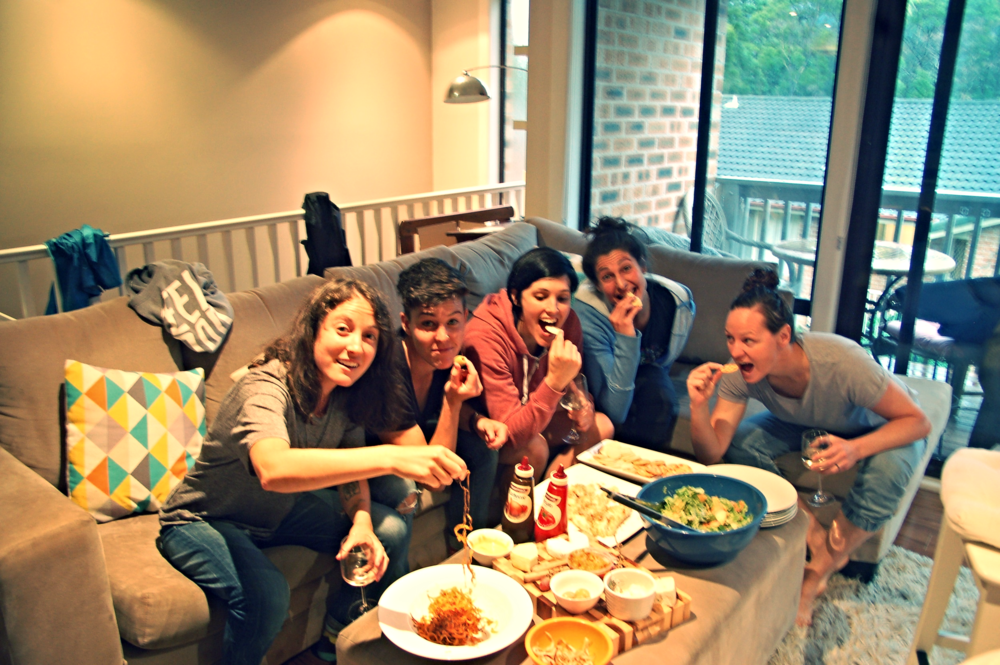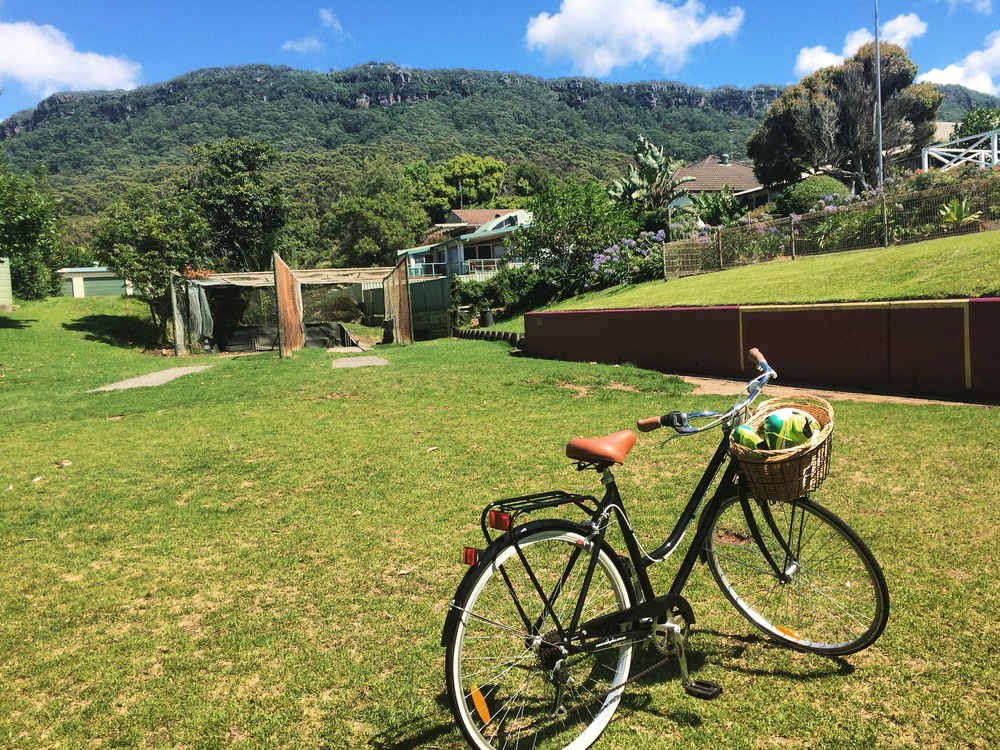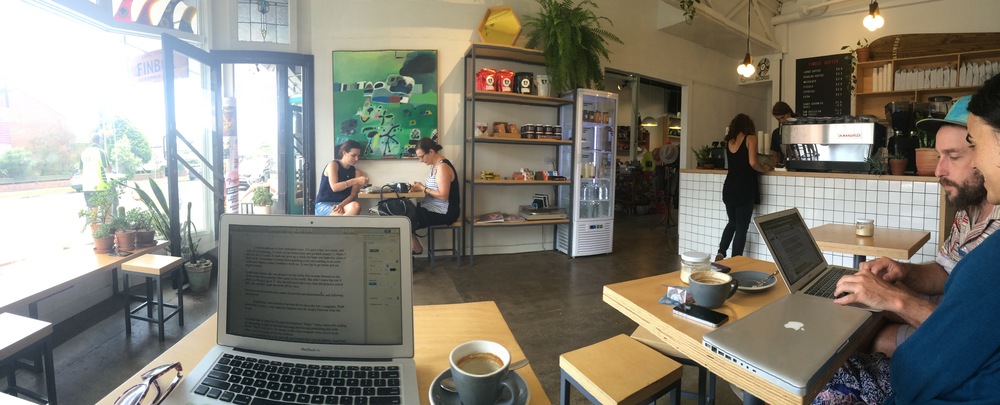My whiplash heat stroke FIFA '94 Concussion
omeone wise once said when you hit rock bottom the only way to go is up. But what happens when you smack your head on a hard flat ground? Realistically, you could go left, you could go right, or you could just remain put for awhile. Heck, if you’re adamant, you could whip out a shovel and dig even deeper. There’s more places to go then just up. My concussion taught me that.
With physical injuries such as broken bones, torn ligaments, stress fractures etc. there’s a general return-to-play timeline. There can be complications sure, but generally the injured person knows what to expect in terms of recovery time.
Concussions are another story. An entirely different breed. They are scary. Uncertain. A silent assassin. You may appear happy and healthy on the surface, but inside-mentally emotionally,and physically-you’re screaming for help. Unless you’ve experienced a serious concussion firsthand, it’s difficult to grasp its complexity. And even then, each person’s symptoms are profoundly different.
In my case, I didn’t even know I acquired a concussion.
Looking back, the concussion signs of my initial blow to the head were present; nausea, headache lightheadedness, disorientation, fatigue, influx of emotion.
The lack of management at the onset of my symptoms extended the length of my recovery.
But I don’t blame anyone. Not the referee who saw the tackle or the physiotherapist who diagnosed me with whiplash, or the doctor who speculated it was a heat stroke, or the migraine specialist who informed I was dealing with classic migraines and not a concussion. I don’t even blame myself.
Hindsight is always 20/20.
If I knew on the day of my first tackle, that I would still be managing concussion symptoms 9 months later, surely I would have left Australia and received medical support from home.
But I know there is reason I didn’t. The path I am taking has been life-changing and needed to happen to put me in the position I am today.
To spark conversations about concussions, to provide my perspective, and empower-at whatever capacity -anyone who is struggling.
My naïveté of concussions stopped me from taking any shortcuts. I was forced to educate myself, become my own advocate, and process every feeling I felt.
I intimately ballroom danced with my lowest of lows and disco jived with my highest of highs.
I transitioned from viewing my concussion as a betraying backstabbing boyfriend, to a world-renowned top tier coach. The kind that you initially despise for making you run doggies until you’re on your hands and knees vomiting, but you look back and realize that it was to build character and strength. Every one of his demands purposeful.
I didn’t go home so I can share my story.
This story isn’t just about concussions. It’s not just about struggling. It’s about living.
We are all living in different chapters of life, with some pages dog-eared and others we wish we could rip to shreds.
When I read other people’s stories, I highlight excerpts that offers new insight, shifts my way of thinking, reminds me of the power within us, compels me to take action, and gives me hope.
If I can take one nugget away from a book, then it was worth the read.
I hope this story is the same.
I’m going to start from the beginning.
On October 13th, I landed in Australia (much smoother than last time: Not So Timely Travel Day), for my second off-season stint with the Western Sydney Wanderers. My motivation to get after it was at an all-time high. These three months I was determined to make massive gains. I devised a daily schedule that insured I dominate each day:
7:00am Wake up, morning routine
7:30 Eat sautéed veggies and protein or an acai bowl
7:45 Walk over to the beach, meditate, journal
8:30 soccer workout
9:30 surf
10:30 home for a snack
12:00 study film/ perform mental work
1:00 Lunch
2:00 Hit up a coffee shop, write for Arrow Living
4:00 Consume nutritious meal before carpooling to training
6:00 Training
9:00 Reflect in journal, read
10:00 Bed
I followed this routine for the first few days and was grooving. Absolutely loving life. Soccer, surfing, writing in chill-vibed cafes, living with my friends in a home that was a 5-minute walk from the beach.…somebody pinch me.
This was about to be an epic, game-changing three months.
Our first game rolled around.
Some games, I play happier than others. I am not concerned with performance. I am flowing. Mindlessly running free. Every pass feels right. Even if the execution isn’t spot on, I can quickly shake off the mistake. Today was one of those days.
Up 2-0 at half, and assisting on both goals, I was in my zone. But in the second half, we conceded a goal, then another, and everything changed.
In the 71st minute, I received the ball on the left side, accelerated down the line to take a player on. I cut the ball inside the player and she tackled me from behind. My back slammed onto the grass, whipping my head back onto the hard ground.
I consider myself a tough player. I don’t Cristiano Ronaldo roll around as if my leg has been sawed off (with all due respect to Cristiano, he’s top class). Even if I am writhing in pain, it’s not in my nature to show it.
I remember the tackle. I hit the grass forcefully and laid face down longer than usual. I felt disoriented and it took me a while to stand to my feet. But I got up. Because that’s what you’re “supposed” to do as an athlete. Tough it out. Plus we just earned a free kick, and it was my duty to take it. The referee issued the player a yellow card and came over to check on me. I can’t remember what she said, but we kept playing.
Throughout the rest of the game, I felt dizzy. I have dealt with far worse migraines and tendonitis throughout my career and knew I could push through this no problem.
After the game, I told my physiotherapist how I felt. She acknowledged the hard tackle and scheduled me for treatment in the coming days.
For the next couple weeks, I experienced headaches, light headedness, nausea, and neck stiffness. These symptoms were all typical of “whiplash”, my diagnosis. These sensations would appear for a couple hours of the day, then fade away.
The following week, we played another game. I was exhausted, but having played very few full length matches in the past month, I knew my fitness wasn’t at its prime. I made it through the game and felt mediocre afterwards, with a touch of nausea and irritability the rest of the week. Nothing that would keep me away from training.
During one of our sessions, I got bumped by a player. I felt a little disoriented, but we only had 20 minutes of training left so I gritted it out. I let our physiotherapist know after and she continued to give me treatment, mostly neck massages, the remainder of the week.
The following weekend was the Sydney Derby; the much anticipated match against our Sydney rivals.
It was a balmy 90 degrees in the stadium, but my adrenaline for the match masked the heat.
The whistle blew and we were underway.
Every time I play, it takes a few moments to get fully acclimated to the flow of the game.
But in the first few minutes, something felt especially off. I received the ball on the left flank and sprinted down the line to take my opponent end line. When I approached my opponent, I instructed myself to lunge right then explode left. A maneuver I’ve performed countless times. But my body’s response was significantly delayed. My opponent easily stripped the ball away.
A couple moments later, we received a right-sided corner kick. In charge of our kicks, I gazed over at the corner flag, dreading the amount of effort I envisioned it would take to jog over, take the kick, then run all the way back to my left back position.
I delivered a personal pep talk: Come on Kendall. I know it’s hot out. I know you’re tired. But so is everyone else. You are stronger than this. Than them. You got this. Keep going.
I dragged myself to the corner flag and whipped in a bent ball.
Stevie Wonder would have a better idea of where the ball landed than me at this point. My vision was clear, but my brain was delirious.
I felt like I was extracted from real life and placed into a scratched disk of FIFA ’94, with the screen lagging and 10 pound dumbbells shackled to my ankles.
Every action required all my energy and invoked intense emotions.
Around the 15th minute, our team conceded a corner. I walked up to my teammate Keelin and muttered “I don’t feel right.” What was intended to be a nonchalant statement, came out as a teary-eyed plea.
Keelin told me to come off, it wasn’t not worth it.
After the corner, my body sat itself down.
The team physiotherapist ran onto the field to assess me.
“I don’t feel right,” I repeated.
I stood up, walked over to the bench, and placed an ice water-dunked towel over my head. The cool temperature soothed my hidden face and provided me with alone space to attempt to process what was happening.
Never in my life, have I voluntarily subbed myself out of a game. Junior year of college I tore my ACL. I heard a pop. It wasn’t painful, but knew it wasn’t a good sign. The doctor ran onto the field, checked my knee and helped me hobble to the sideline.
This time was different. I didn’t know what was happening. My self-engrained rugged, relentless mentality willed me to keep playing, but my body simply wouldn’t let me.
Everything around me was happening too quickly, too loudly, too brightly, too…too much.
The doctor asked if I wanted to go into the locker room where it was quieter and darker. I did. I got up and my assistant coach asked me if I was alright to keep playing.
“Yes” , the conditioned mentally-tough part of my brain automatically responded. But my body ignored my ego and kept walking towards the locker room tunnel.
I threw myself on the training table.
My emotions took place in intervals. One minute I felt pissed off, frustrated, sad, confused, and betrayed.
“WHY ME!?? WHY CAN’T I JUST BE HEALTHY!!??”
I thrashed my body around on the table as if I could physically shake off these feelings.
Then, all of a sudden I released all my body’s tension and laid perfectly still. The mindful, two-consecutive-years-of-meditating part of me kicked in and guided me through a breathing practice. Everything is going to be okay. Non-judgment. The situation is neither good nor bad, it just is. Inhale deeply, exhale deeply
A few moments later,
“WHAT THE HELL IS HAPPENING!! I’M TIRED OF BEING HURT AND SICK AND INJURED. I JUST WANT TO BE HEALTHY!!!!!!”
This interplay continued for thirty minutes. Maybe more. I had no concept of time.
I read somewhere that you cannot be frustrated while being grateful. So I elected to make a mental list of the things I was thankful for:
I am grateful for my mom, my dad, my brothers, my dog, my relatives, the ocean, whales, Tempurpedic pillows, almond butter, trees, books, hammocks, napping. ..Aw yes napping. Your body just needs to take a little nap Kendall, relax. This all can be dealt with later. Get some rest and you’ll wake up a new person.
I didn’t sleep. Even with my eyes shut, I felt light-headed and pressure pounded my skull.
Our game ended and our physiotherapist entered the room. She attempted to alleviate my pain with a neck massage. She theorized that my neck tightness was a huge contributor to my disorientation.
The team doctor then appeared and asked if I had played in the heat since I arrived In Australia. He speculated that I may have a heat stroke. We practiced at night so the afternoon temperature was hotter than usual, but his remark was a blow to my ego. I like to think my mind and body are strong enough to deal with a little extra heat. Although at this point, I didn’t know what to think.
My housemates, AM and Lara, then walked into the room. I looked at them and broke into tears. I tried to explain to them how I felt. Through wet eyes, I told them I just wanted to leave.
The doctor and physiotherapist were out of sight. I gathered my bags and we headedout the stadium.
AM, a physiotherapist herself, asked if I remembered getting hit in the head during the game.
“What? No, I didn’t get hit.”
AM looked concerned. She talked to multiple girls on my team and they all witnessed a ball get blasted into my face.
I teared up even more. I was confused, with zero recollection of this incident.
AM explained that memory loss and being overly emotional are signs of a concussion and recommended we go to the hospital to get a CT scan and MRI.
AM called our team doctor to update him on the drive to the hospital. She explained to him that my teammates saw me get hit in in the head, but I didn’t remember, and that she suspects I have a concussion. The doctor asked to talk to me.
I grabbed the phone.
“Hello”
“How are you feeling Kendall” he asked
“I feel the same, I still don’t feel good.”
“Do you remember getting hit?”
“No”
“Ok, I thought you might have had a heat stroke and rest would help. But sounds like you might have a concussion if you got hit. I have to go to the guys game, but Am will take care of you and I will check in after.” He hung up before I could respond.
I felt strange.
We arrived at the the emergency room and I flashbacked to my last season’s emergency room visit; a processor to a 7 night all-inclusive stay, when I snuck out of my hospital bed to see Chelsea Handler at the Sydney Opera house. (My Hospital Visit and Lessons of the Legendary Lilypad).
On my way to the front desk, blood rushed to my head. The walk over felt as if I had just gotten out of the ocean after swimming for 20 hours straight. My legs were wobbly, and I feared that one missed step would send me crumpling onto the floor in tears.
The entire process of testing, and a lot of waiting, took 3 hours.
My results came back negative. During this time, we found out it was actually another girl on the team with blond hair who got hit in the face, and not me.
At surface level, this appears comforting.
But if the scans were negative and I didn’t get hit in the head, then why on earth did I feel like this?
The hospital doctor informed me that I had a minor concussion. He handed me a medical release form and and a sheet of paper detailing standard concussion protocol. He anticipated that if I take it easy for a week, my symptoms would go away and I could resume playing soccer.
We left the hospital around 11:00pm and picked up some Indian food for dinner. I popped some anti-nausea pills and inhaled my green curry dish. An instant pick-me up. I crawled into bed around midnight. My head throbbed, but I knew I already hopped onboard the recovery train. A solid’s night rest would boost me even further and I’d be back on the pitch in no time.
Little did I know, this train had some technical difficulties.
(Future posts will highlight how these “technical difficulties” profoundly impacted my outlook on life. Stories are meant to be shared. I’d love to hear yours, don’t hesitate to reach out)
Previous post: Why I Saw Strange Men in my Room (and am telling you about it 9 months later)








